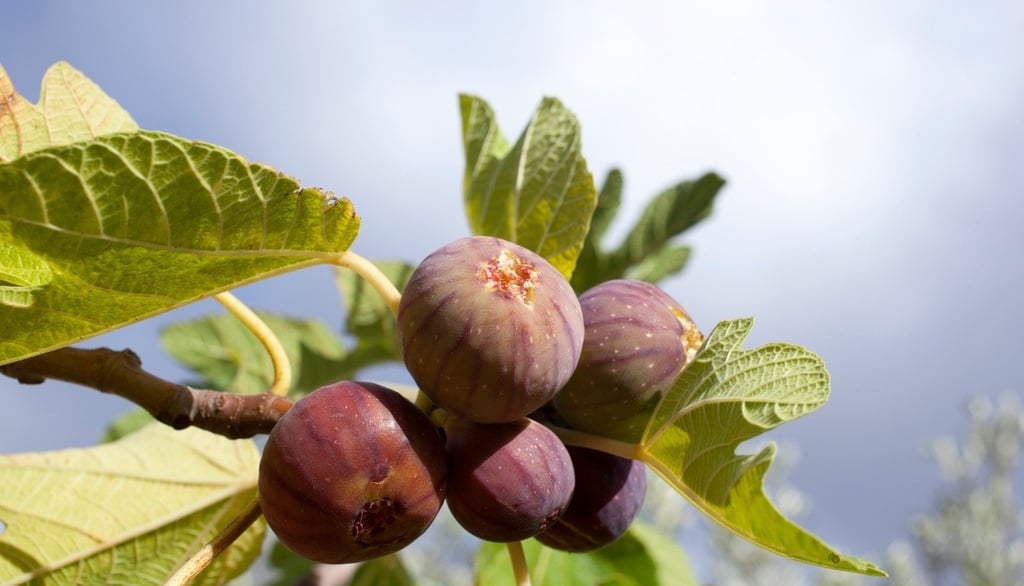Everything About Figs: Origins, Uses, Nutritional Power & Vegan Delights
Discover everything about figs—origin, history, uses, nutrition, health benefits, and unique vegan recipes. A must-read for every plant-based food lover.
3/20/20254 min read


The Fascinating Origin of Figs and Their Name
The fig (Ficus carica) is one of the oldest cultivated fruits known to humanity. The name "fig" originates from the Latin word “ficus”, which was directly borrowed from the ancient Greek “sýkon”. Linguistic traces reveal that this humble fruit has been revered since antiquity for its sweet flavor, medicinal properties, and symbolic associations with fertility and abundance.
Archaeological discoveries in the Jordan Valley indicate that figs were domesticated around 11,000 years ago, making them one of the first cultivated plants, even predating wheat and barley. Ancient civilizations such as the Sumerians, Egyptians, Greeks, and Romans valued figs both as food and for ceremonial purposes. In Egyptian mythology, fig trees were associated with gods and the afterlife, often buried with the dead for nourishment in the next world.
How Figs Gained Global Popularity
Figs spread rapidly through the Mediterranean Basin, thanks to the trading routes established by Phoenicians, Greeks, and Romans. The fruit became a staple in the diets of Ancient Rome and Greece, often dried and stored for long voyages. Roman soldiers carried dried figs as a reliable energy source.
The popularity of figs expanded further with the Arab conquest, reaching North Africa, Persia, and India, and eventually Spain and Portugal, from where it was introduced to the Americas in the 16th century. Today, figs are celebrated for their history and versatility in plant-based diets, particularly within vegan and whole-food movements.
Top Fig-Producing Countries
Globally, Turkey leads fig production, contributing nearly 25% of the world's fig supply. The Aydın Province, in particular, is world-renowned for its high-quality Smyrna figs, prized for their size, taste, and texture. Other significant producers include:
Egypt
Morocco
Iran
Algeria
Greece
Spain
Italy
Each region produces its own varieties, from Black Mission figs in California to Kadota and Adriatic figs in the Mediterranean.
Figs in Culinary Use: A Vegan’s Dream Ingredient
Figs are a versatile ingredient in both savory and sweet vegan recipes. They can be enjoyed:
Fresh: sliced into salads, paired with nuts, or eaten solo.
Dried: added to granolas, energy bars, or vegan cheese boards.
Cooked or Baked: incorporated into tarts, vegan roasts, sauces, and chutneys.
Their natural sweetness and chewy texture make them a perfect substitute in sugar-free desserts and plant-based confections.
Unusual Vegan Dishes Featuring Figs
Figs inspire culinary creativity beyond traditional use. Here are some unexpected vegan dishes that spotlight figs in a gourmet way:
Fig & Walnut Vegan Cheese: A creamy, fermented cashew base infused with dried figs and crushed walnuts for a tangy, umami-rich cheese alternative.
Roasted Fig & Balsamic Cauliflower Steaks: Oven-baked cauliflower steaks topped with fig-balsamic glaze and served over herbed quinoa.
Figs in Spiced Coconut Curry: Dried figs simmered in a fragrant sauce with turmeric, cumin, and coconut milk, create a unique sweet-savory profile.
Vegan Fig Sushi Rolls: Sticky rice rolled with dried fig slices, avocado, cucumber, and mint, drizzled with sesame-lime dressing.
Stuffed Sweet Potatoes with Fig-Harissa Sauce: Baked sweet potatoes topped with chickpeas, kale, and a smoky harissa sauce enhanced with dried fig paste.
Fig & Chocolate Vegan Tart: A gluten-free almond crust filled with a fig-date cacao ganache, topped with fresh figs and crushed pistachios.
Read more: Vegan Mushroom Cream Soup
Nutritional Value of Figs
Figs are a nutrient-dense fruit, ideal for a whole-food, plant-based diet. Here’s a breakdown of their nutritional profile:
Per 100g Fresh Figs:
Calories: 74 kcal
Fiber: 2.9g
Sugars: 16g (natural fruit sugars)
Vitamin A: 142 IU
Vitamin K: 4.7 mcg
Potassium: 232 mg
Calcium: 35 mg
Iron: 0.4 mg
Magnesium: 17 mg
Per 100g Dried Figs:
Calories: 249 kcal
Fiber: 9.8g
Calcium: 162 mg
Potassium: 680 mg
Iron: 2.0 mg
Magnesium: 68 mg
Natural Sugars: ~48g
The high fiber content supports gut health, while the calcium and magnesium contribute to strong bones and muscle function—especially vital in plant-based lifestyles.
Health Benefits of Figs
Figs offer numerous health advantages that align with vegan wellness goals:
Improved Digestion: Figs help regulate bowel movements and support gut microbiota thanks to their soluble fiber content.
Heart Health: Rich in antioxidants, potassium, and polyphenols, figs contribute to lower blood pressure and reduced cholesterol levels.
Bone Strength: A rare plant source of calcium, dried figs enhance bone mineral density, a key concern in dairy-free diets.
Blood Sugar Balance: Despite their natural sweetness, figs have a low-to-moderate glycemic index, especially when eaten with nuts or whole grains.
Anti-inflammatory Properties: Polyphenols and flavonoids in figs have demonstrated anti-inflammatory effects, protecting cells from oxidative stress.
Fig Trees: A Symbol of Sustainability
Fig trees thrive in dry, arid climates and require minimal water compared to other fruit crops, making them a sustainable crop for eco-conscious diets. Their wide, shading leaves also contribute to soil preservation and biodiversity in agroforestry systems.
Interesting Facts You Might Not Know
Buddha reportedly gained enlightenment under a fig tree—specifically the Bodhi Tree, a species of fig (Ficus religiosa).
Figs are technically inverted flowers, with the fruit forming inside the flower structure.
There are over 700 fig varieties, each with unique taste profiles, shapes, and ripening patterns.
Certain fig trees rely on fig wasps for pollination, though many commercial varieties are self-pollinating and vegan-friendly.
Conclusion: Figs in the Modern Vegan Kitchen
From their ancient roots to their modern culinary innovations, figs remain one of nature’s most nutrient-rich and adaptable fruits. Whether consumed fresh, dried, or transformed into gourmet vegan dishes, figs provide flavor, nourishment, and historical depth to any plant-based table. As we embrace whole-food, eco-conscious living, figs stand out as a timeless, ethical, and healthful ingredient, ripe for exploration and enjoyment.

Pure Vegan Path
Explore plant-based living and delicious recipes.
Contact
Newsletter
info@pureveganpath.com
123-456-7890
© 2024. All rights reserved.
